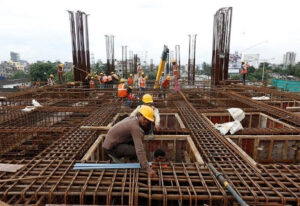Was Reliance on Future Group a mistake for Amazon?
2 min read
In August this year, Future Group entered into an agreement with Reliance Retail to sell its retail, wholesale, logistics, and warehousing to the latter.
As a part of the deal, Future Retail was to sell:
- Its supermarket chain – Big Bazaar
- Premium food supply unit – Foodhall and
- Fashion and clothes super-mart – Brand Factory’s retail as well as wholesale units.
Future Group owes $3 billion in loans, the lenders of which led by State Bank of India (SBI) created pressure to manage its debts. To cut down the same Kishor Biyani before August was selling off shares of several companies of Future Group but did not achieve success.
Lockdown due to COVID 19 was another nail to the coffin as it affected the sales of the major Future Group Businesses – Big Bazar, Foodhall, and Brand Factory. Reliance Industries expanding into the growing industry of India’s Retail Market which is expected to reach $1.3 trillion by 2025 came to the rescue of the Future Group entering into the agreement for Rs. 24,713 crores.
But in October the global e-commerce giant Amazon came into the picture with complaints to SEBI against the deal, later moving to Singapore International Arbitration Centre (SIAC) with an appeal against Kishore Biyani, Future Coupons, and Future Retail. In August 2019 Amazon signed a deal with Future Group acquiring a 49% stake in Future Coupons worth nearly Rs. 2,000 crore allowing not just Future Retail to place its products on Amazon but also agree that it would be a part of Amazon’s new plan of delivering products in selected cities within two hours.
With this deal between Future Group and Reliance, Amazon had to say that the deal between Amazon and Future Group was violated as it required Future Group to inform Amazon before entering into any sale agreement with third parties.
Future Retail termed the Singapore ruling as legally unenforceable in India and moved to the Delhi High Court requesting to stop Amazon from interfering in the deal also stating that it had complied with all the requirements of obtaining approvals from Future Coupons as was required in the Shareholders Agreement.
The 132-page court verdict also pointed out that the Amazon-Future deal is prima facie in the offense to the FDI and FEMA rules as there was an absence of government approval for which a detailed complaint was submitted to the Commerce Minister, Finance Minister, Enforcement Directorate, SEBI, and RBI for taking action.
Hence now the ruling for the transaction lies in the hands of SEBI and the Ministry of Corporate Affairs.



